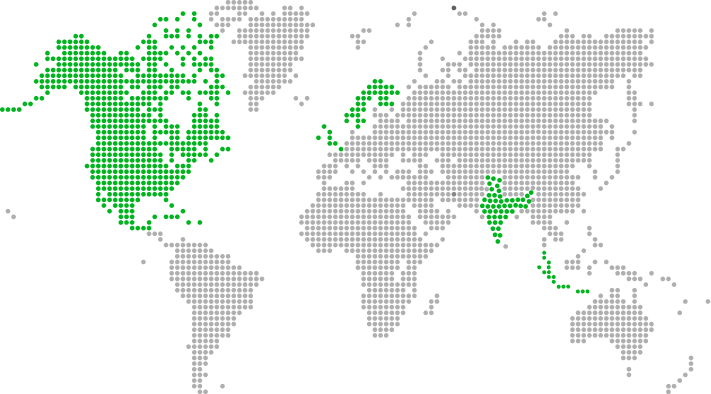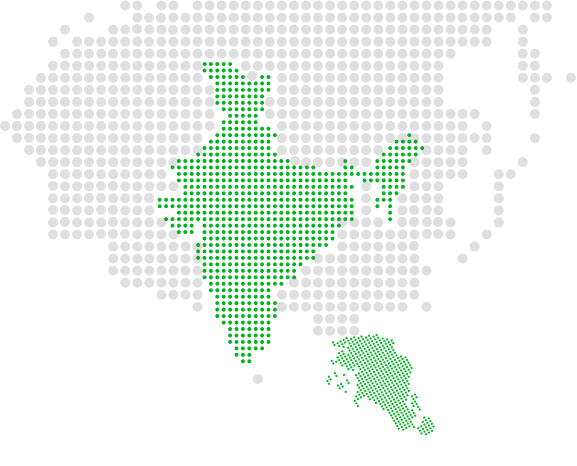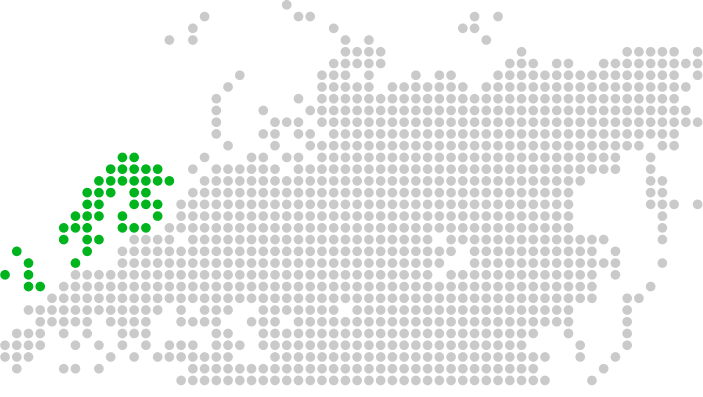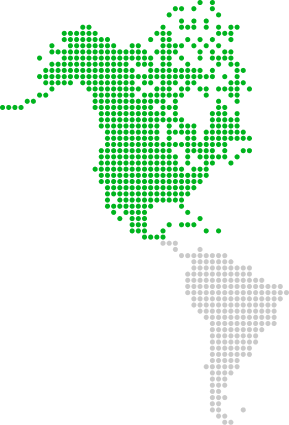



By Nilesh Sapar, Delivery Director, Financial Services
Data is one of the most valuable assets of any modern organization. Voluminous data is a blessing as long as it is used to generate business insights. This further propels data-driven decision-making and forms the basis for formulating new business strategies.
However, unattended data can quickly turn into a liability. Data brings along with itself the responsibility to manage, secure, maintain and continuously generate value. This prompts organizations to address the need for “Data Governance” which is core to their Data Architecture.
Gartner predicts data-driven culture as one of the key focus areas of Data and Analytics leaders in 2021. This is supplemented with a strong data and analytics strategy and an effective data governance implementation program.
Having said that, organizations facing data challenges should get started with their governance program. But what are the various aspects of data governance and how can organizations cruise in their governance journey? Here’s a quick read.
A Well-Defined Data Governance Program
Data governance needs to be a well-defined and organized process. Simply put, it is how effectively your organization manages all the internal and external data. This includes “data source” – “data cleanse” – “data convert” – “data enrich” as needed by your business. All this while optimizing the total cost of ownership of data and its associated ecosystem for your organization.
In any data governance program, the primary task is to source relevant datasets. Re-engineer, streamline and optimize data management processes and build relevant dashboards, performance indicators, and reports which can help in continuous improvement. With time, the data ecosystem needs to adapt to changing technologies, growing data volumes and velocity, integrate with the newer organizational applications. It should also be flexible to provide data on-demand for new value-added projects in the organization. Engagements that utilize deeper technologies like Artificial Intelligence (AI), Machine Learning (ML), and so on.
Expectations in Data Governance Implementation
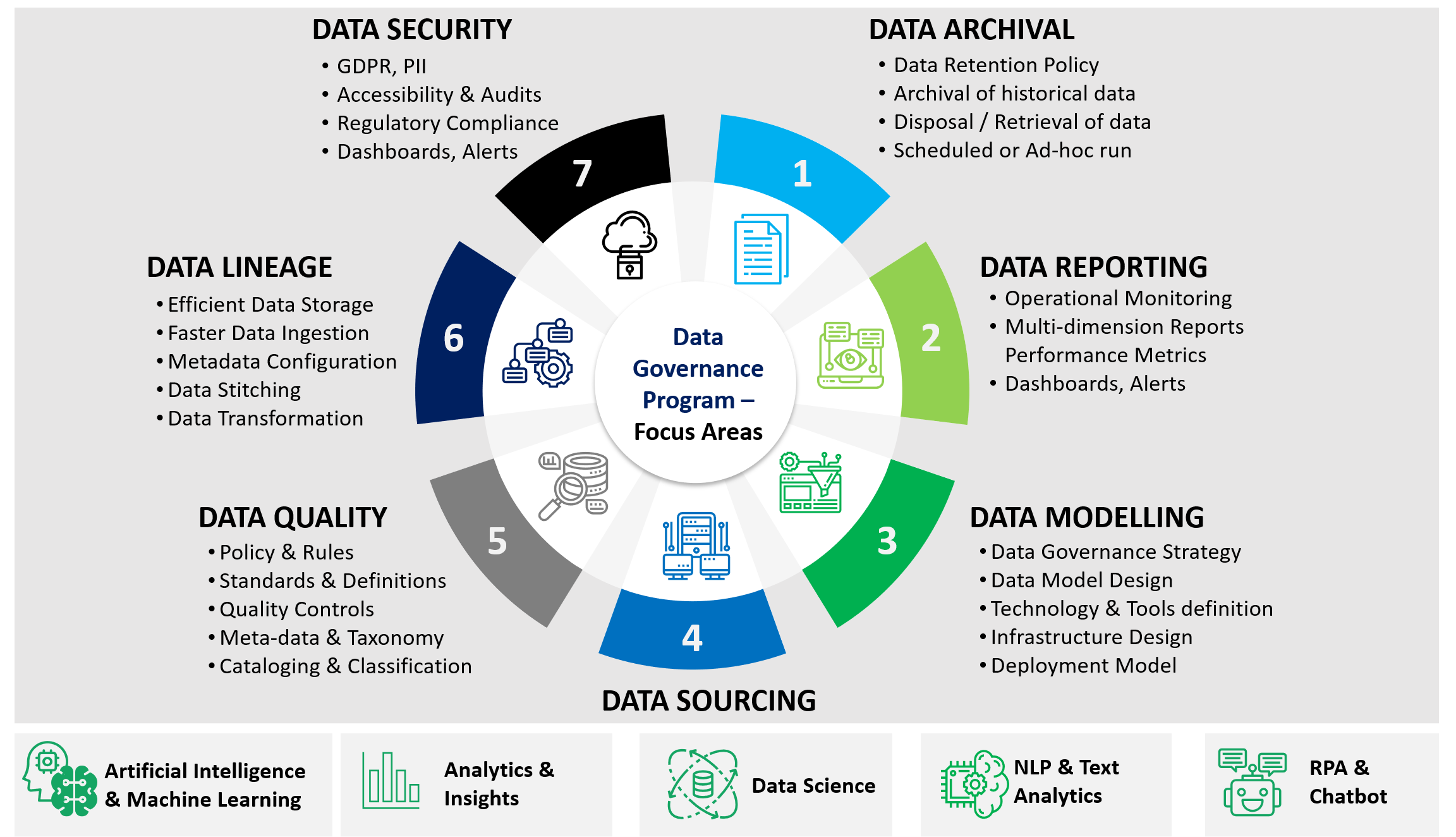
Having introduced the importance of data governance, implementing it is a complex and stretched task for organizations. Architecture, planning, and execution of a data governance program at an organization level need an experienced task force team. At Xoriant, our experienced technical team has implemented mission-critical data governance programs seamlessly for a gamut of clients.
From our experience as a technology partner, the common expectations from customers in data governance implementation include:
- Ownership of data governance program
- Guidance in the right direction
- Simplification of the overall process
- Application of proven implementation methodologies
- Demonstration of incremental success
- Ensuring a successful and sustainable program
Outcomes, Objectives and Prioritization
At Xoriant, we work with client stakeholders, business users, technology teams, operations teams, marketing, and customer support teams to get a holistic approach of the business environment. We gather their pain points, new application requirements, improvements expected in the current system, etc.
These include business-critical requirements, immediate burning issues, mandatory technology upgrades, replacing legacy technologies, the need for automation or integration, etc. We chart the outcomes and objectives – discuss, review, and prioritize them with the client stakeholders – and draw the program charter for achieving these. Once the outcomes are finalized and the objectives are prioritized, they will become input for the Data Governance program implementation plan. Below are common outcomes and objectives expected from a Data Governance program:

Deep Data Discovery & Analysis
The foundation of the program execution is the Discovery phase. In this, we plan a detailed study, understanding of the current data architecture including analysis, detailed documentation of the requirements. We identify the data owners and consumers, work with them to study each data source system in detail. We go through each of the data flows from its origination, till the data is consumed by the downstream applications or reports or data warehouses.
The focus is to identify pain points such as integrity issues, quality issues, data redundancy, duplicity, missing master data standards, lack of data ownership, manual reconciliation, etc. Also, we gather detailed requirements from the users for the ‘to-be system’ to be developed. We provide an as-is data model along with a data dictionary of current systems, which many organizations don’t have documented.
Sustainable, Extensible and Flexible Technology Platform
Data governance programs can be built onto the existing technologies, or they can start with the new technology platform entirely. Many times, organizations start right away with data projects in pockets, but those initiatives are not brought together under one program.
A common approach towards all such current and future data initiatives will help in establishing a uniform data platform in the organization. It will help to leverage common tools, technologies, and practices across the projects.
On a single platform, it is easier to plan end-to-end automation, the exit of high-cost tools or databases, develop new integrated applications, etc. Common products like Ab Initio, Informatica, IBM InfoSphere, Talend are the main tools that are used.
Alternatively, clients are also open to developing their own customized data management solution as per their needs. Nowadays, clients are considering open-source technologies which are scalable, high-performing, and cost-effective. Our approach is to establish a sustainable, extensible, and flexible technology platform for clients which will allow adding new projects, tools, technologies incrementally to it.
Xoriant Data Accelerators
Based on our experiences with multiple Data Governance program executions, we have developed ready-to-deploy data accelerators. These Xoriant data accelerators bring value addition across the program execution phases in terms of best practices, standardization, efficiency, productivity, quality, monitoring, and control.
Data Governance Program Execution Methodology is our proven approach which is a guide for planning, execution, and monitoring the program from start to end. For each phase, it has all the details such as tasks, tools, team roles, quality gates, documentation and deliverables, reviews and sign-offs needed, etc.
Xoriant’s Data Management Architects and subject matter experts apply their vast experience and industry best practices to facilitate solution architecture, technical designing, and overall platform delivery.
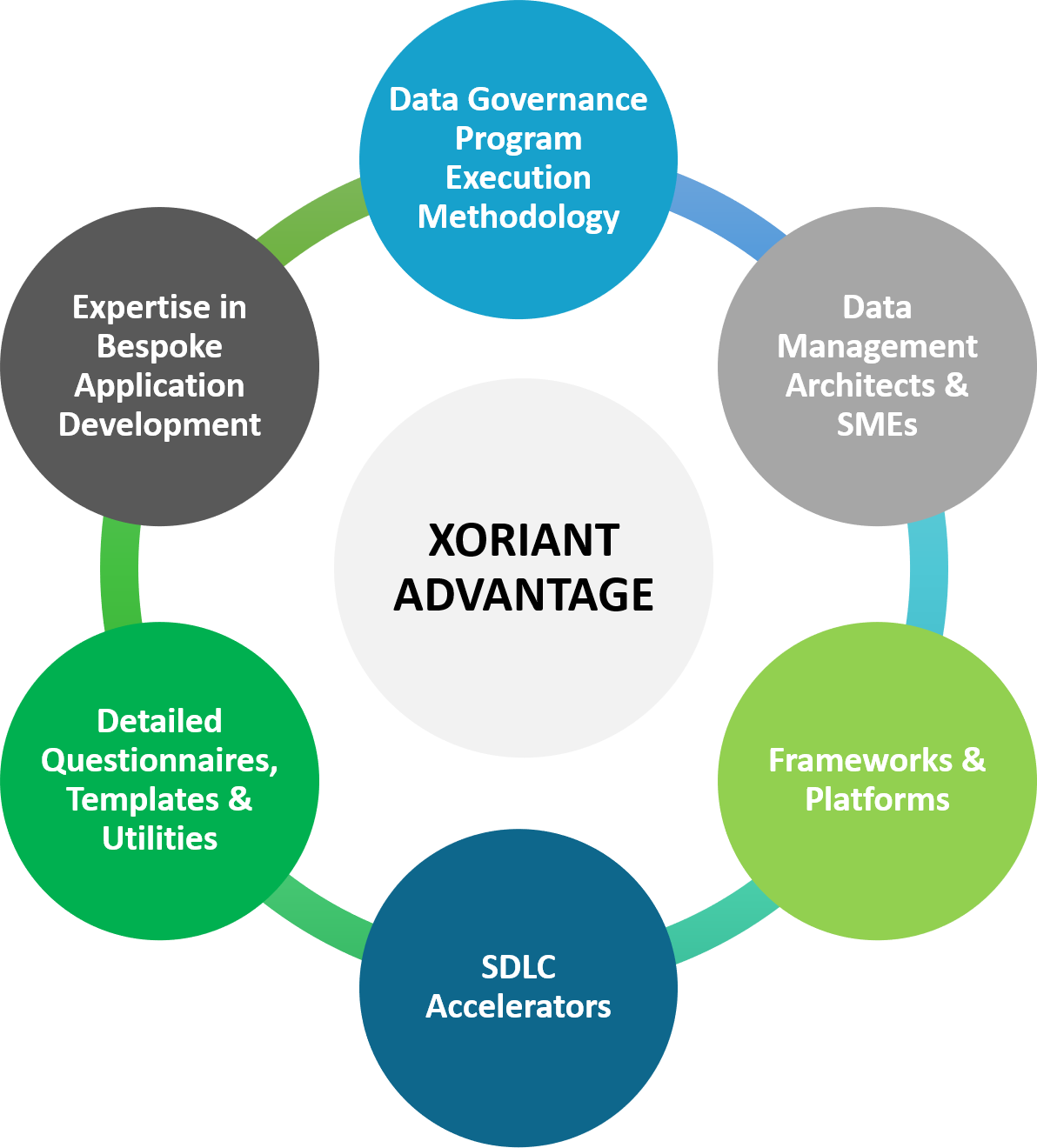
Following Xoriant Frameworks and Platforms are available to clients to leverage the ready solutions:
- Data Ingestion Platform for rapid data ingestion from any to any data source.
- Data Governance and Quality Platform for reference and master data management.
- Low Code Development Platform for rapid UI generation.
- Data Visualization Framework for pre-built visualization components to use.
- Data Science and Analytics Framework for ready modules/algorithms.
- Natural Language Processing Framework to extract data from documents, images.
Our SDLC Accelerators bring in development productivity and efficiency with:
- DevOps Continuous Delivery Framework which is pluggable in any project.
- Performance Monitoring Platform for application performance monitoring.
- Quality Monitoring Framework for applications and infrastructure monitoring.
- Test Automation Framework for seamless frontend and backend testing.
At Xoriant, we bring in our Detailed Questionnaires, Templates, and Utilities for each phase of the engagement. This ensures all the areas and details are covered as part of discovery, design, and development.
Having sound experience and expertise in Bespoke Application Development can give you the advantage to get custom applications developed instead of using licensed tools. Some of Xoriant’s key solutions delivered to the client include Regulatory Reporting Application, Spark-based ETL Tool, Payments Message Processor, and so on.
We continuously enhance and add new Xoriant Accelerators as we deliver more and more successful programs for our clients. By being a valuable partner with three decades of expertise across industry verticals, we ensure seamless delivery of Data Governance solutions.
To know more about Xoriant Data Governance Program or to speak to Xoriant Data Governance SME about your data governance implementation requirements, write to info@xoriant.com
Further Reading: Policy-based Data Remediation Framework For Enterprises



 View Previous Blog
View Previous Blog
